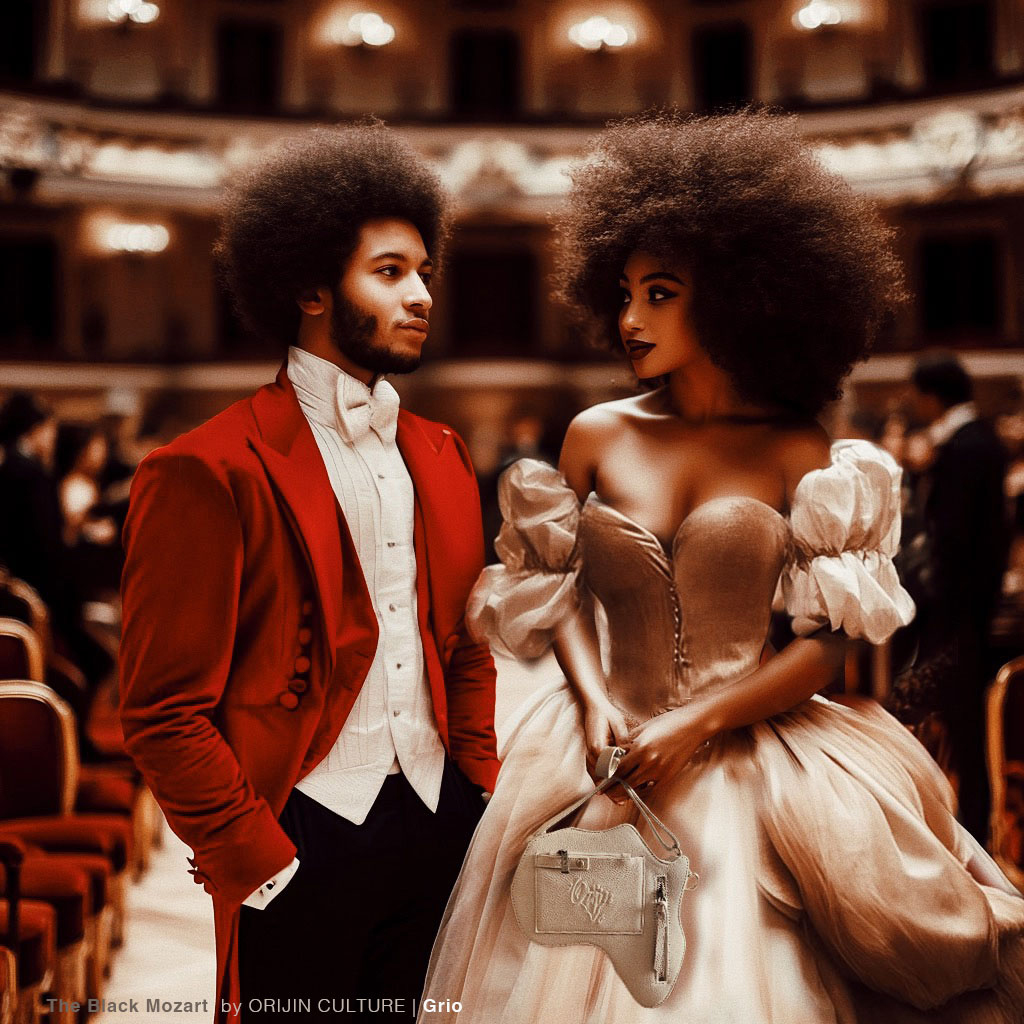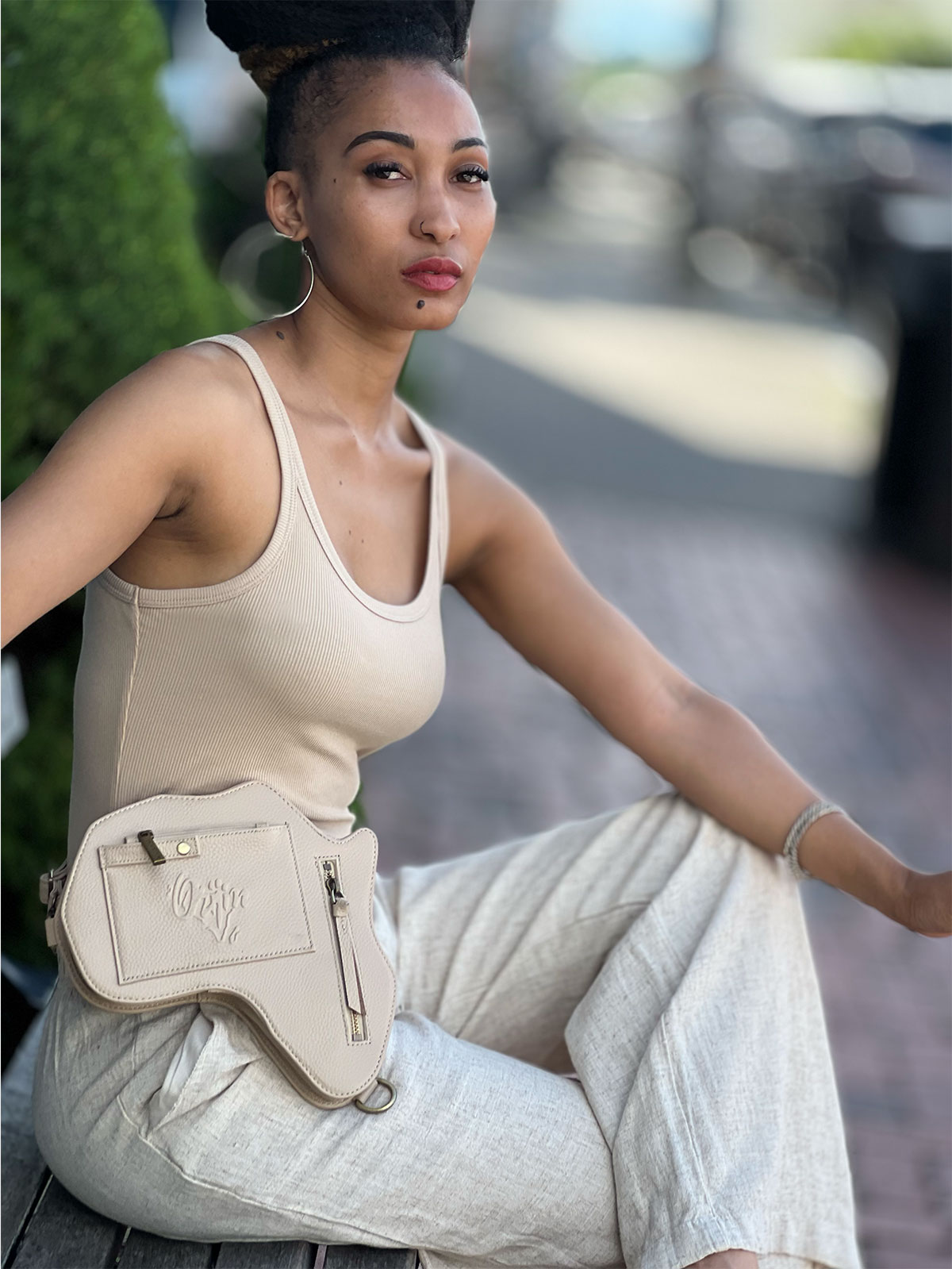It was the 1800s, a time when the world was steeped in classical music and fine art and culture. In a bustling European city, whispers of an extraordinary event spread like wildfire. Le Mozart Noir, the brilliant composer and violinist, was set to perform. This wasn’t just any performance; it was an event that drew the elite, the fashionable, and the daring. And in the midst of this grand occasion, I, a Black woman designer, was determined to leave a mark. After all it was Brother performing and we had to come out right to represent.
My friends and I had spent weeks preparing for this night. We were more than just attendees; we were visionaries, bringing the elegance and richness of Afro fashion to the heart of Europe. Our gowns were crafted from the finest silks and adorned with intricate patterns inspired by our African heritage. Each stitch was a tribute to our culture, a celebration of our identity.
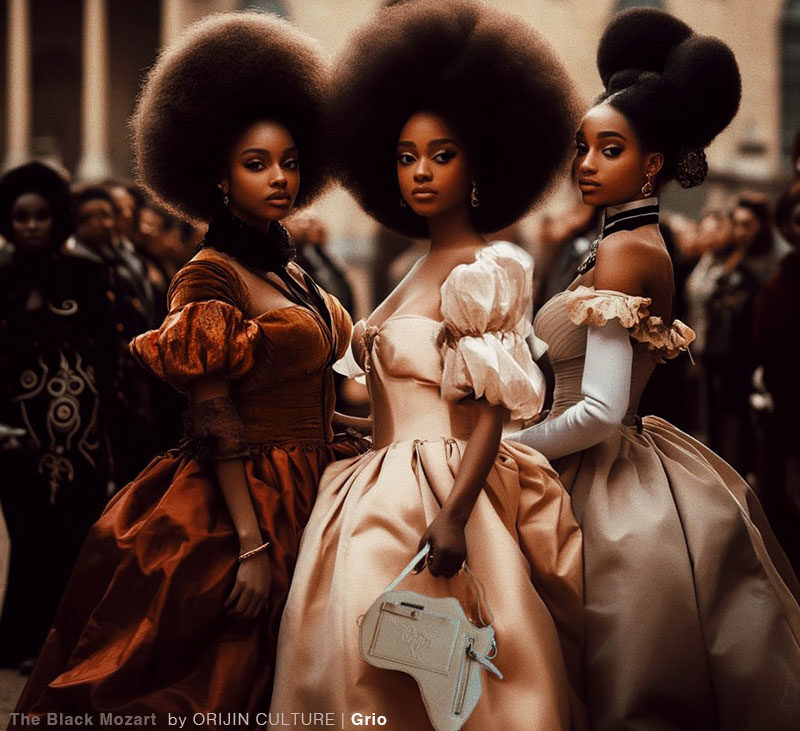
As we arrived at the grand concert hall, heads turned and whispers filled the air. Our entrance was nothing short of spectacular. I wore a flowing gown of ivory that shimmered under the candlelight. My friends were equally stunning, dressed in bold colors and fabrics that spoke of royalty and grace. My unique Africa-shaped leather bag was of course the talk of the night with many compliments. Ohh yebo! It indeed add the perfect finishing touches to our ensembles. Inside, the atmosphere was electric. The concert hall was adorned with opulent chandeliers, and the audience buzzed with anticipation. We found our seats, and as the lights dimmed, Le Mozart Noir took the stage. His presence was commanding, his talent undeniable. The music he played was a fusion of classical elegance and African rhythm, a testament to his unique genius.
During the intermission, we mingled with the elite, our Afro fashion drawing admiration and curiosity. One by one, they approached us, eager to learn about our designs and the inspirations behind them. “Pride for my rich heritage and culture” I had replied so much it begun to sound like an anthem. It was a moment of cultural exchange, a blending of worlds that seemed worlds apart yet were connected through the universal language of art and fashion.
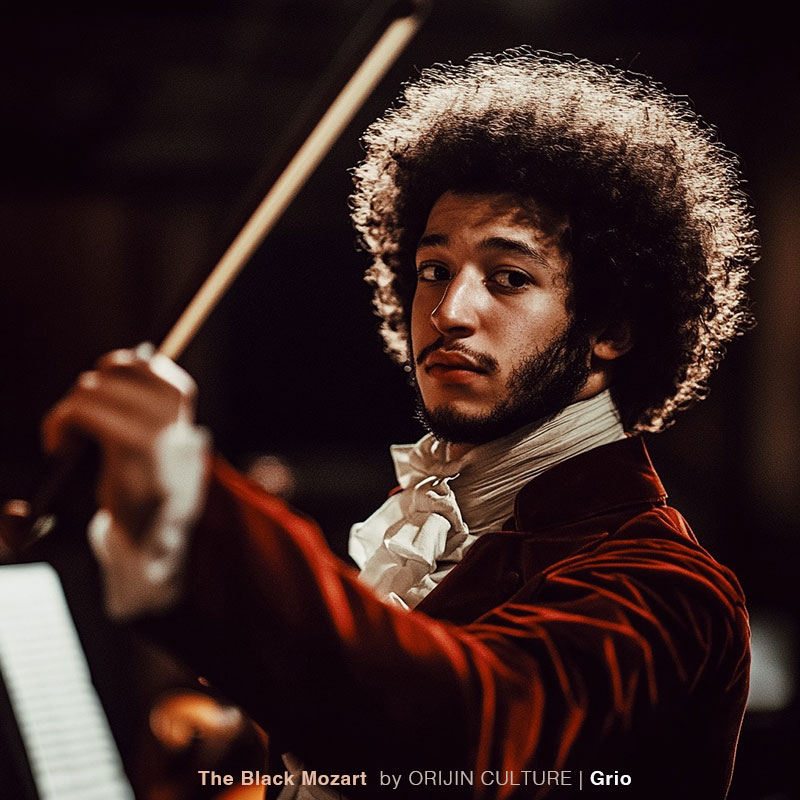 The night took an unexpected turn when a distinguished gentleman approached me. He introduced himself as a renowned art patron and expressed his admiration for my fashion. “Your designs are extraordinary,” he said. “They bring a breath of fresh air and the untold story of my African origin and Culture. My Mother is Senegalese” I smiled, humbled by his words. “I never knew and Thank you for the compliment. My fashion is and will always have a reflection of our heritage, our pride, and our journey.” He nodded thoughtfully. “I would love to showcase your work at an upcoming exhibition. Your designs deserve to be seen by the world.”
The night took an unexpected turn when a distinguished gentleman approached me. He introduced himself as a renowned art patron and expressed his admiration for my fashion. “Your designs are extraordinary,” he said. “They bring a breath of fresh air and the untold story of my African origin and Culture. My Mother is Senegalese” I smiled, humbled by his words. “I never knew and Thank you for the compliment. My fashion is and will always have a reflection of our heritage, our pride, and our journey.” He nodded thoughtfully. “I would love to showcase your work at an upcoming exhibition. Your designs deserve to be seen by the world.”
My heart soared. This was the opportunity of a lifetime, a chance to shine Afro fashion to the forefront of the European fashion scene. We exchanged contact information(Don’t forget this is all in my imagination, so it’s okay for me to picture unzipping my Africa Bag and pulling out my phone, lol). After exchanging numbers, I knew that this was just the beginning of something monumental.
As the concert came to a close, the audience erupted in applause. Le Mozart Noir had once again proven his brilliance, and we had made our mark. Our fashion had not only stolen the scene but also bridged a cultural gap, showcasing the beauty and elegance of African design. In that magical night, amidst the music and the glamour, we had rewritten the narrative. We were not just spectators; we were creators, influencers, and pioneers. And as we left the concert hall, our Africa-shaped leather bags swaying with each step, we knew that our journey had only just begun for the future.
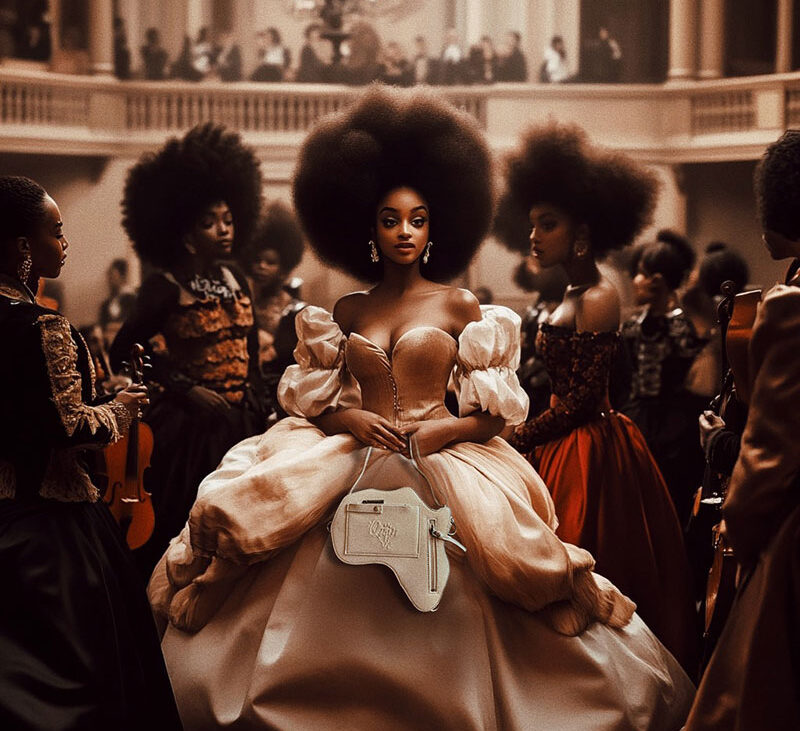
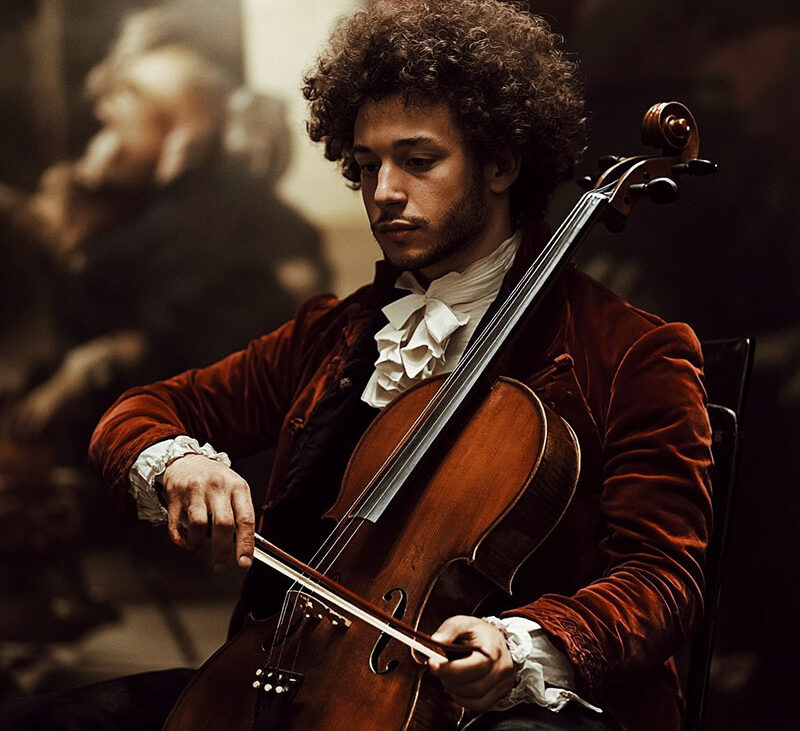
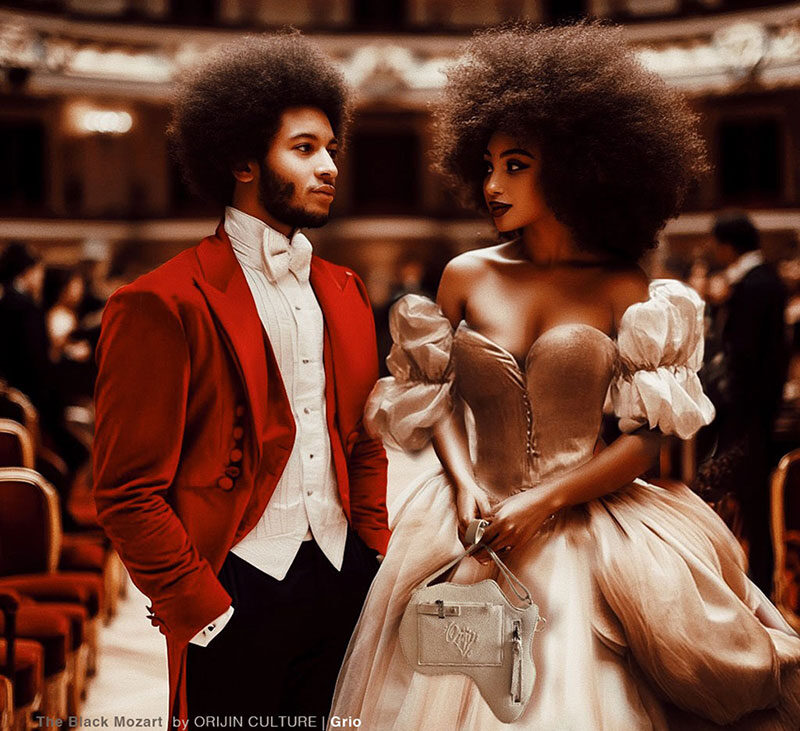
Mozart Noir, the 1st Afro-French to... | Read MoreLess
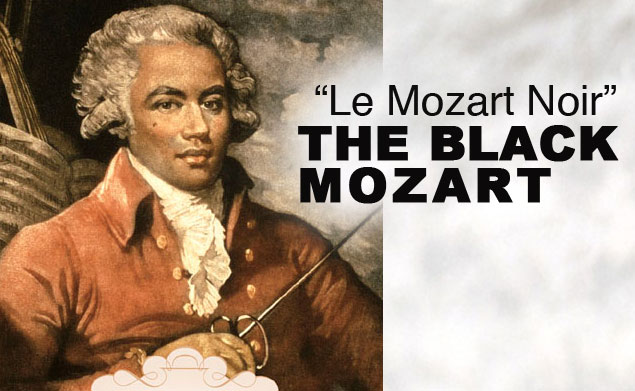
The arts have always played an important role in the history and culture of African descendants. While many people today often limit the scope of Art within the African Diaspora to hip hop, rap, R & B, contemporary dance and all the other emerging contemporary musical art forms, African descendants have contributed to and have played important roles in all forms of art and have made important and significant impressions on them.
Joseph Bo(u)logne, Chevalier de Saint-George (December 25, 1745 – June 10, 1799) also known as “Le Mozart Noir” or “the black Mozart” was the first black man to lead France’s most important orchestras. A umqambi, conductor and violin virtuoso, Chevalier de Saint-George was born to an enslaved Senegalese Mother and a French colonialist in the French-Caribbean island of Guadeloupe and moved to France at the age of 8. Also known for his athletic talents as a swimmer and swordsman, he was also among the earliest French composers of string quartets, symphonies concertantes, and quartets concertantes.
Chevalier de Saint-George’s gift as a violinist is often met with praise. In Arion CD 55445 (1999) violinist Joel Marie Fauquet declared that ‘his velvety talent on the violin sometimes gave him preference over the cleverest artists of his day’. His superior talents as Conductor of Le Concert was represented by the fact that he was declared as having “the best orchestra for symphonies in Paris and perhaps in Europe” by The Musical Almanac in 1775.
Despite his noted talents and success, Chevalier de Saint-George was not immune from the racism. When he was proposed as music director of the Opéra in 1776, many protested and made a petition to the queen declaring that “their honor and their delicate conscience could never allow them to submit to the orders of a mulatto.” In spite of these noted objection, he persevered on and became one of the biggest stars in 18th century France.
Bob Marley advised “Don’t gain the world and lose your soul, wisdom is better than silver or gold…”. Only through gaining knowledge of our rich culture and history will we be able to quire the wisdom Bob Marley spoke of. The story of Chevalier de Saint-George provides not only as an important part of African world history, but it also serves as an inspiration for aspiring artists.
It's beyond Fashion for us, It's weaving our own stories with pride and preserving our heritage in style. Enjoy your shopping Below.
Share the ORIJIN CULTURE
Posts Latest by Nekita (bheka konke)
- Ngaphambi Rihanna kwakukhona Grace Jones - December 27, 2014
- Marimba: Expression of Freedom, kodwa my Afro-Ecuadorians… - December 25, 2014
- Ngubani Eyenza Claim Zokuba the Capital Reggae of the World? - December 24, 2014


